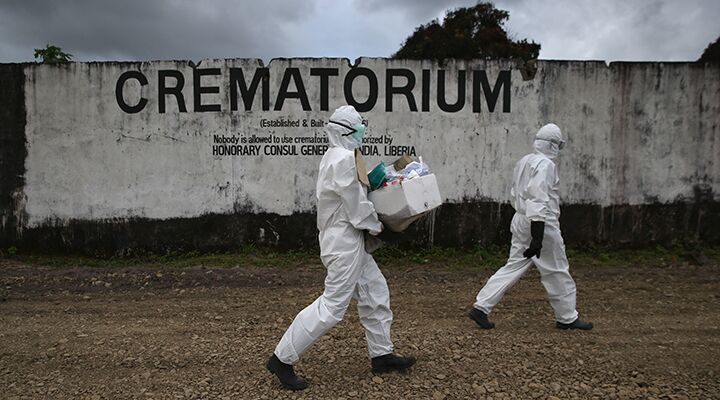
Ebola—The Spread Continues
The World Health Organization (who) reported September 9 that 3,600 people are infected with Ebola in West Africa; 2,288 have died from the disease. Forty-seven percent of those deaths occurred within the last 21 days. Cases have been confirmed in Guinea, Sierra Leone, Liberia, Nigeria and Senegal. The Ebola virus is overrunning West Africa with no signs of slowing down.
In April, when early Ebola reports came out, the Business Standard reported 134 Ebola cases in Guinea. In April, 84 people had died from Ebola. The disease spread seemingly overnight claiming the lives of many who came in contact with the disease.
In August, Guinea deployed military medical officers to its Sierra Leone and Liberian borders. They were deployed to quarantine the virus. There were 41 checkpoints along the Liberian and Sierra Leone borders connecting to Guinea. Treatment centers could not be opened or expanded fast enough to accommodate all the cases.
To help curb the spread of Ebola, the United States and Britain will send equipment and troops to West Africa. This comes as West Africa faces a dire need for more medical professionals. The troops will build a field hospital in Monrovia that will hold 25 beds for aid workers. The U.S. will provide “periodic support” for 180 days and ensure availability of supplies at the hospital for the duration of the 180 days. The facility will be turned over to the Liberian government once it is established. Meanwhile, the British aid workers will create a 62-bed field hospital near Freetown, Sierra Leone.
“This Ebola epidemic is the largest and most severe and most complex we have ever seen in the nearly 40-year history of this disease,” who director general Margaret Chan warned on September 3. However, a recent study by Oxford University shows a potential 22 countries spanning across central, western and even southern Africa could also become infected. There are 22 million people considered to be living in “at-risk areas.” The study drew this conclusion by observing reported cases of humans having transmitted the disease as well as infection in bats and primates. Fruit bats are considered the natural host of the Ebola virus, but no clear case of bat-to-human transmission of Ebola has ever been proven. And the precise source of the virus has not been clearly established by scientists. With few answers and no cure for the virus, an increased spread of Ebola is a strong possibility.
who recently estimated that 20,000 people may become infected by Ebola before the disease is contained.
The presence of Ebola has risen dramatically since the 1970s and 1980s. The Bible prophesied such disease outbreaks centuries ago. Matthew 24:7 states that “there shall be famines, and pestilences,” referring to the end time—the days we live in now. To learn more, read our booklet The Four Horsemen of the Apocalypse.
